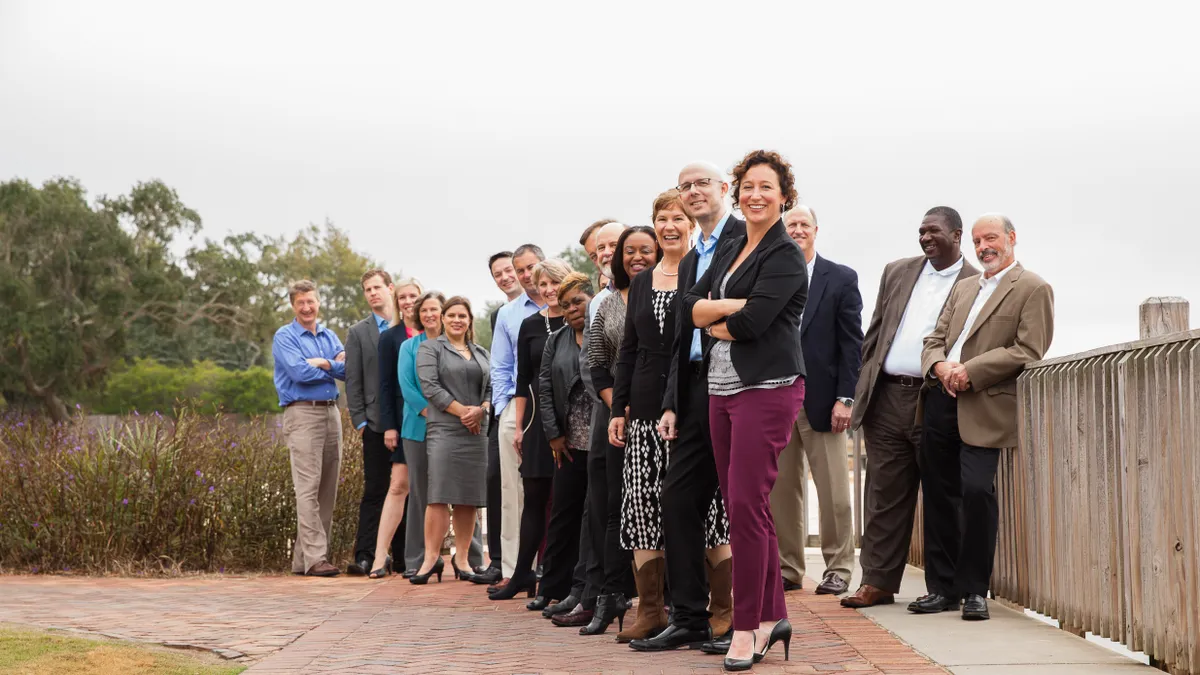Dive Brief:
- The Recycling Partnership's has helped generate $29 million in total infrastructure investment since 2014, according to the national nonprofit's latest annual report. This is made possible by corporate backers that spur matching government grants for local projects. The goal is to reach $33 million by the end of 2018.
- During 2017, the nonprofit helped place 182,000 curbside recycling carts across the country, bringing its collective total up to 407,000. Through 2017, The Recycling Partnership had reached 29 million households and worked with 583 communities. According to a recent press release, the figures are already higher based on recent activity.
- The goal is to move those tallies up to 500,000 carts, 40 million households and 750 communities this year. New backing from ExxonMobil (with a $1.5 million commitment), plus Amazon, Starbucks, Sappi North America and International Paper can be expected to help fuel these efforts.
Dive Insight:
The Recycling Partnership started as the Curbside Value Partnership in 2003, but has experienced the most significant expansion in recent years since CEO Keefe Harrison joined in 2014. With a growing list of staff and corporate partners (35 and counting), the nonprofit has become a leading name in the space.
Last year, that entailed working with states such as Ohio and Tennessee on education, as well as Massachusetts on a contamination reduction toolkit for local governments. Curbside carts were also deployed in various cities and pilots were conducted to help improve existing programs. This included success stories on reducing contamination and increasing capture rates for Denver, Atlanta and Chicago. The list of other projects, partnerships, webinars, conference appearances and other notable items has grown increasingly long.
With recycling programs in some states experiencing some of the most fundamental challenges they've seen in years, the need for guidance and investment is high. The Environmental Protection Agency isn't set up to help solve all of these local challenges, and many state agencies aren't either. The various corporate funding available as grants from The Recycling Partnership or below-market-rate loans from Closed Loop Fund is now seen as increasingly desirable when it comes to finding investment for education or infrastructure.
As public pressure over environmental stances at big companies ramps up — in the form of climate change lawsuits for companies such as Exxon, or shareholder activism around food waste at Amazon and packaging at Starbucks — getting behind recycling can improve consumer impressions.
If applied well, this funding can also help these companies profit from continuing to send more virgin plastics, shipping boxes, coffee cups, soda bottles and other products into the waste stream with the increased assurance that it will all be recycled in greater numbers. In the months ahead, with both processing costs and demand for better domestic capabilities on the rise, it will be interesting to watch whether all of these efforts can help stabilize the current consumerist recycling system that the U.S. has grown accustomed to.















